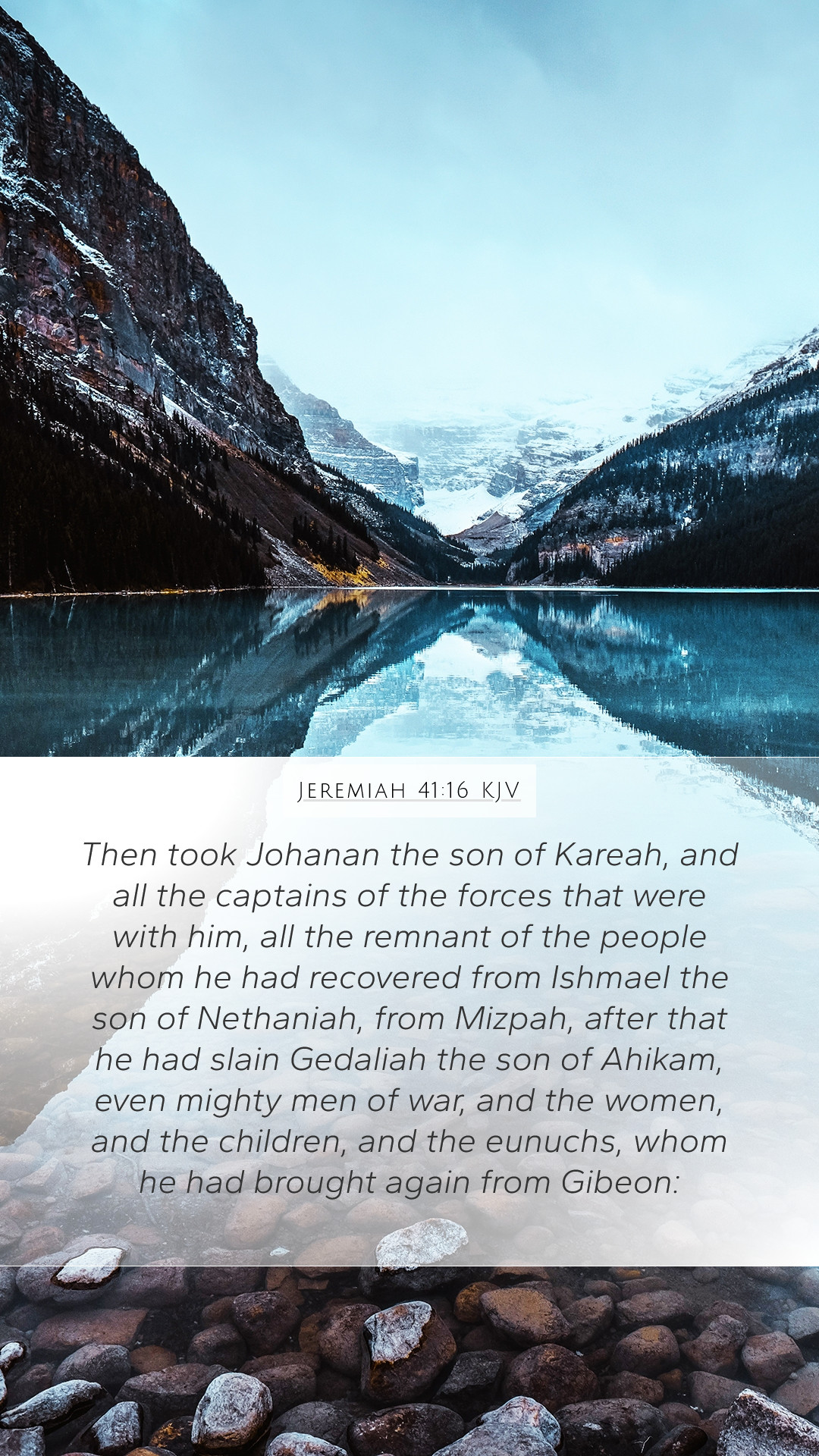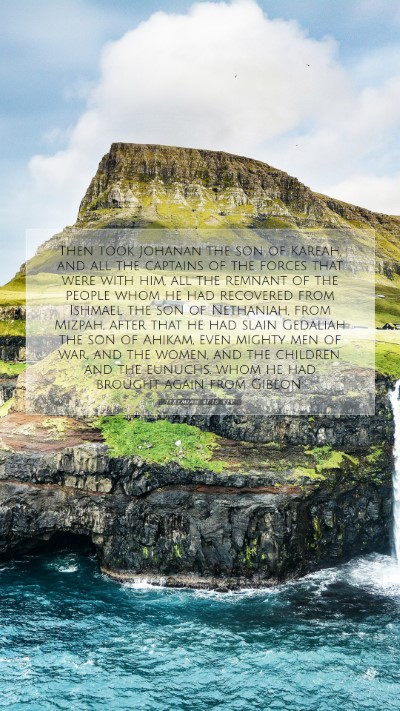Understanding Jeremiah 41:16 - A Comprehensive Bible Verse Commentary
Jeremiah 41:16 states: "Then took Johanan the son of Kareah, and all the captains of the forces that were with him, and all the remnant of the people whom he had recovered from Ishmael the son of Nethaniah, from Mizpah, after that he had slain Gedaliah the son of Ahikam, even mighty men of war, and the women, and the children, and the eunuchs, whom he had brought again from Gibeon."
Contextual Overview
This passage contains critical insights into the historical context following the fall of Jerusalem. After the Babylonian destruction and the death of Gedaliah, a leader appointed by the Babylonians, chaos ensued. This verse highlights the actions of Johanan, who sought to reclaim the remnant of the people and protect them from further harm.
Biblical Exegesis of Jeremiah 41:16
The meaning of this verse can be explored through various commentaries:
-
Matthew Henry:
Henry emphasizes the leadership of Johanan as an act of saving and restoring the people. His mention of taking “mighty men of war” indicates a preparation for defense against potential attacks, highlighting the themes of protection and restoration in the chaos.
-
Albert Barnes:
Barnes points out the significance of the collective effort in bringing back the remnant. The mention of women, children, and eunuchs shows that everyone was affected by the calamity and highlights the urgency of assembling the community for survival.
-
Adam Clarke:
Clarke discusses the implications of Ishmael’s earlier actions. He suggests that Johanan’s response was part of a larger picture of resistance against the injustices experienced by the people of Israel after the siege.
Key Themes and Insights
Jeremiah 41:16 reveals several themes relevant to Bible study insights:
-
Leadership in Crisis:
Johanan’s leadership demonstrates a noble response to communal loss, embodying biblical principles of courage and responsibility.
-
Community Restoration:
The focus on including all members of society in the recovery process shows the holistic approach to healing and rebuilding after tragedy.
-
The Aftermath of Destruction:
This verse provides insights into the psychological and social impact of the Babylonian exile, showcasing the struggle for survival amid social disarray.
Application of Jeremiah 41:16
In applying this verse to daily life, it encourages believers to act decisively in times of crisis, ensuring that all members of the community are cared for and included in plans for recovery.
Related Bible Verses
- Jeremiah 40:7: This verse sets the stage for Gedaliah's appointment and the initial circumstances leading to the events of Jeremiah 41.
- 2 Kings 25:25: References Ishmael's actions and connects with the wider narrative of the destruction of Jerusalem.
- Matthew 2:13-15: Embodies themes of fleeing to safety, paralleling the remnant's desperate measures for protection.
Conclusion
Understanding Scripture involves careful biblical exegesis and an awareness of the historical context, as highlighted in Jeremiah 41:16. This passage underscores the importance of leadership and community in times of upheaval, providing valuable lessons for today’s believers. Through studying scripture and utilizing comprehensive Bible study resources, individuals can gain deeper insights into difficult Bible passages and enrich their understanding of biblical narratives.


